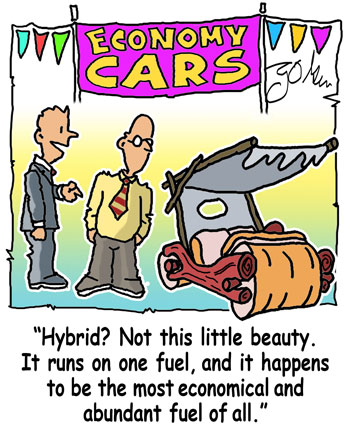A case study was raised in Automated Saving article
this is the practice I implement for myself with CIMB bank:
1. open one Basic Saving account type2 as "income account"
2. open one Air Asia Saving account as "budget account"
3. open one Basic Saving account type2 as "expense account"
income acct is my receive the $$$ I earn
budget acct is where I keep my 3-6 mth emergency fund and budget for any annual expense.
every month, the standing instruction from income to budget and from budget to expense is automated.
and I only keep expense ATM card with me, so my spending capability is limited to what I have in the expense acct.
whatever left in the income acct will be used for investment purpose.
if I ever want to buy something in future, I just add the SI into the flow I had above.
would my practice contradict to "pay yourself first" idea? what is the loophole/drawback in my practice?
thanks:)
Analysis is in progress now ..... What do you think about this ?
Pardon the delay in reply. When I first read this, my first thought was Great, Superb, Excellent ! But that was only as a comparison to others who do not save at all. So the discipline of setting this up is worth congratulating !!
The reason I didn't respond immediately that way thou ... was because I felt something wrong too but I couldn't identify what it was. Now that I sit down and look it through ... the only small potential pit fall is the investment part. You were saying you will use your "Income" money to do investment. Now investment usually comes with risk and it could earn as well as lose you money. Losing money from your #1 income account is not a soothing idea. So its best to allocate aside some money for investment purpose. I am guessing you haven't really started any big time investment yet, that's why you were just briefly thought of it. So its ok, not that big a deal.

Basic Saving Account in CIMB pays 0.25% interest which is relatively better than others account which pays 0%. However Mudharabah pays around 1%. Although not a fix rate scheme but it evidently will continue to pay higher interest than other saving accounts.
So one of the ways to improve an ASS or automated saving system is to keep the saving at the highest interest account. This may not be feasible now since your salary is already paid into the Basic Saving Account. You can change now or wait till next career change or major promotion.
Air Asia account on the other hand, although seems pretty attractive now, but I personally do not like this kind of marketing account as my 'saving' accounts. It is designed mainly for frequent flyer and it should be roll under expense category. I live long enough to see this kind of accounts come and go not lasting very long. This Air Asia account is also tight to Tune Money and a Visa card. In short, this account will tempt you to spend money a lot in months to come. Then in a couple of years, this account will be de-prioritized when CIMB partners with another merchant. By then the interest will drop to Zero etc.
If you are sure you wouldn't use the ATM, Tune Money, Visa Card and online features that comes with Air Asia Account, you may keep it to enjoy the higher than BSA interest now. But I DO NOT recommend keeping emergency fund and annual expense in this account.
Ok, generally this is my recommendation:
1. Keep your 6 months emergency fund and annual expense in your "Income" account.
2. Use your Air Asia account as your "Expense" account
This way you reduce one SI and keep more money in your "Income" account. So if you also move your "Income" account to higher interest at one shot you also earn more effective money too.
3. If investment is still needed, setup a dedicated account for that.
As for the investment account, you can use existing "expense" account for that purpose. If you are serious about investment ie. investment is more important than expenses or investment is the door to your future etc. then you should SI from your Income account to the Invest account. Otherwise, if it is still too early to talk about investment, ie. I don't mind invest some when I don't use up my expense money. Then you can transfer investment money from your left over expense account from time to time ( no need SI ).
However in real life, usually once you fix an investment method, they will have an 'account' for you too. So in general you just transfer the money straight to that investment account and not to another saving account. For example, I open an account to invest in stock market with Jupiter, so I transfer my investment money from my bank saving account straight to Jupiter's account. This is why I was guessing you haven't really started investing yet.
Using bank account to save first before actually investing is ok too. In that case, you may also consider Fix Deposit which gives much higher interest and you are not sure when you will use the money yet.

The rest of the recommendation are optional;
4. Use a higher interest account like Mudharabah as your 'income' account
5. Or keep your 'income' account but SI your saving into Mudharabah to store your 6 months emergency. Leave annual expenses in 'income' account.
6. Once you achieve 6 months emergency fund, move them into a monthly re-invested FD.
Annual expense is another topic worth mentioning. Basically this year you are saving for your next year annual expense. Then by this year end, the fund is moved to the 'expense' account for next year use.
MalPF's method was simpler and cover less categorization ... all it says is once you get your income ( time1:salary ), save a FIX portion up immediately ( ie. time2:using SI ). Then its up to you what you do with the rest of your money.

Remember this is just a blog post in Internet, I do not know you and your real condition. Use your own best judgement what to agree and what not. Afterall a paid consultants will always say, "Lets meet up" and spend 8 hours asking all about your ancestors before giving you advice - "
Yes! You did good and now you should also open this and that accounts too with my partners."
Hope this helps some ...















 "The recession is NOT over ... it has been Glossed over ..."
"The recession is NOT over ... it has been Glossed over ..." "
"



